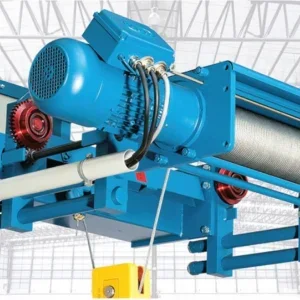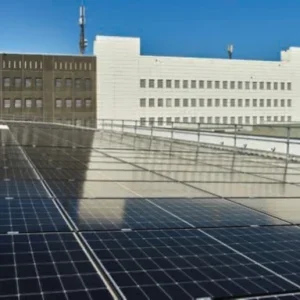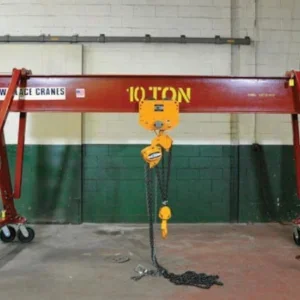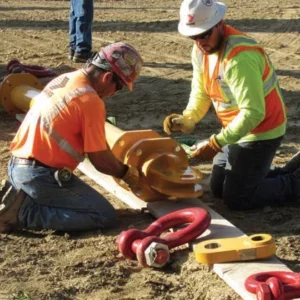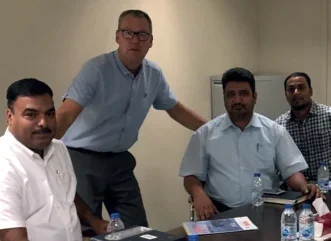
Richard Oldknow is a member on LEEA’s Technical Committee and is a consultant for EMEA at Yoke Industrial Corporation, where he was formerly vice president of sales.
‘It’s exciting to see the return of GLAD2024 – The Lifting Industry Needs You!’. When I entered this industry, more than 35 years ago, it was more by luck than planning. There were no in-house promotions, and our industry was synonymous with other industrial sectors in decline at that time.
However, the lifting industry was no different to what it is today, i.e., the lifting and moving of heavy loads, but at that time it did not have the recognition as a preferred employer or have the awareness in the employment sector as an exciting, varied, forward thinking, digital, sustainable and a globally recognised industry that it is today.
I entered this industry after leaving HM Armed Forces where I had a job in IT, followed by positions in distribution, sales, management and training.
In each of these roles, working for two global manufacturers who fortunately, even then and even more so now, were focused on continuous investment in people and product, best practice, education, and training to eliminate accidents on the job. In my current role, we see the benefits of all these investments, and with the training and digitalization I am involved with, it sometimes feels like a whole new world.
My personal involvement in GLAD2024 is focused on our LEEA Accredited Training and digitalization, which is aimed at attracting the next generation of entrants to this industry as well as playing a vital role in mentoring my colleagues and engaging with end users and global partners.
It is up to all of us to continue to enhance safety in our industry, it is a never ending, continuous process, and it still gives me a buzz to see that people are still eager to learn about new products and processes.
When I see what we do today at Yoke, from using robots to operate and feed the forging hammers and CNC machines to embedding digital chips into each and every lifting product that gives valuable information regarding safety to the user, from certification, pre use checks, safe use instructions to geo locations.
The LEEA Accredited Training Scheme is one of the key features of GLAD2024 ensuring a high quality of training is presented to end users through this scheme, and we are proud to be focusing on this at this time.
As already stated by LEEA; We are excited to be part of GLAD2024 and our focus on ATS includes; high quality course design and materials; qualified and experienced trainers; excellent facilities and learning environments.
We also quickly realized that if you could harness the third hand of the new generation (the smart phone) and incoporate this into the lifting industry along with digitalization, when we say The Lifting Industry Needs You, it has a much quicker resonance with them, than trying to show them how to use a chain sling or lifting point, although we all recognise that a mixture of both; experience, knowledge and innovation is still a vital part of safety in the workplace. I have also, as part of our commitment to GLAD2024 just completed the training and accreditation of three Yoke personnel in India, the Americas and Asia.
Much of the improved visibility in our industry is not only down to some of our forward-thinking leaders, but to every individual who puts the safety of himself, co-worker, and employer first, each day and every day, linked to awareness days such as GLAD2024.
After more than 35 years in the industry, and being an active member of LEEA Technical Committee and BSI MHE/1, I am still learning and sharing and GLAD2024 gives us a great platform to interact and attract the next generation.
I am excited to use #GLAD2024 to be able to give something back to the profession.’
David Cormack, Vice Chair, LEEA Board
David Cormack, MD, Delphini, is no stranger to LEEA, having worked on the Technical Committee for five years and now promotes to Vice Chair of The Board, alongside Oliver Auston.
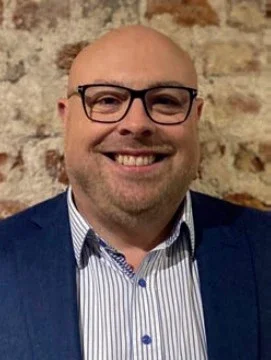
“I’m looking forward to lots of changes in LEEA in 2024. We’re trying to push ahead with exciting new things such as the ChatBot, that helps with technical advice, which we launched at LiftEx 2023 and we’re working on the new Members Audit, to bring it into the 21st century,” he said.
“All members when they join LEEA, have to go through a process that is audited every year or two years, depending on the company and how long they’ve been members. It’s a technical audit and it’s one where we make sure that members are flying the Gold Standard
“It’s a way that customers and buyers ensure that when people see the LEEA badge they know it actually means something. and members have been audited to a high technical standard.”
Cormack will be vice chair for two years, which began in January this year, expected to move into the role of chair shortly after “I passed my first LEEA exam in 1989 and the association has always been a part of my life since I started in the lifting gear industry so I’m very excited to be part of the LEEA Board,” he said.
“I started Delfini in 2000. We started with very humble beginnings employing two people in the port of Tilbury, specialising in port and shipping lifting equipment. We’ve now got some 34 people working for us and a large manufacturing facility where we manufacture structural steel as well as lifting, safety equipment, lifting beams and spreaders. It’s a massive change from how we began one that we’re looking to grow on. If I am promoted to chairman, the year that I’ll become chair will be Delfini’s 25th anniversary. A great milestone.
“Right now, we’re pushing to make all our processes as digital as possible, which is a big challenge, but something we’re looking forward to implementing.
“We manufacture to a high standard, so we have EN 1090, which is a fabrication process certification, and next year we’ll have ISO 45001, a Health & Safety accreditation, which is incredibly valuable as we have lots of engineers offsite.”
Kat Moss, LEEA Board member
Kat Moss is former chair, of the LEEA Board as well as IMS manager at Catena Inspection & Engineering Services
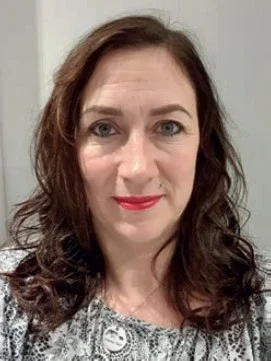
‘I first got involved with LEEA because I was passionate about getting the industry to be more widely recognised and in turn attracting new people to join. I was shocked to realise there was no formal educational path to become a lifting engineer and soon realised this was mainly tackled by companies doing a mix of in-house training along with sending staff to LEEA to attend in-person training courses. This didn’t help in attracting a younger workforce.
I’m a huge supporter of LEEA’s Think Lifting campaign and the school experiment program so in 2019 when I was asked by LEEA if I’d be interested in chairing the Trailblazer Group for the Lifting Equipment Technician Apprenticeship Standard I thought I had better put the money where my mouth is and get stuck in. This process had to be driven by employers rather than a trade body, so LEEA facilitated the start-up and helped where it could, including exploring becoming the End Point Assessor, but were not allowed to actually write the scheme.
After a bedding-in period, myself and other members got together, along with a lovely support person from the Institute who guided us through the process, and we began to thrash out what we thought a qualified Lifting Technician would look like and how we would get them to that point.
To say it was one of the hardest things I have ever done is an understatement and if we hadn’t recognised the desperate need for an industry apprenticeship it would have been easy to give up. We had to learn new terminology and think in a way that was far removed from our day jobs. We had numerous email conversations and in-person meetings for days at a time. After two years we thought we were getting there, we had the details down, the methods, how it might be taught, all the things we thought we needed and then the government requirements changed meaning we had to look at it again.
We then had the battle of finding training providers to deliver it, many were reluctant as they didn’t know the industry, and it took some convincing that if they could teach the basic engineering principles, LEEA could bridge the gaps for the rest. We found a way to deliver the End Point Assessment (EPA) and overcame a couple of hurdles to get everything we needed. As the apprenticeship went live LEEA sang the message to the membership and beyond but there was a glitch. The first training provider got delayed. Fortunately, Ross Moloney, CEO, LEEA, and I had a fortuitous conversation with a local provider to me, Qualitrain, which was excited to add the apprenticeship to their skillset. They started delivering in 2023 and we managed to recruit an apprentice at Catena who is now several months into their apprenticeship.
The ongoing message is to remind employers this apprenticeship is now available in England and Wales and its important to promote it to ensure its continuation. My parting comment is to say thankyou to LEEA for recognising the importance of an industry apprenticeship, supporting us at every step of the way and helping us to look for solutions and answers to problems we encountered. LEEA is keen to get younger people into the industry to maintain its viability.’
Martin Halford LEEA Board member
Martin Halford is MD and owner of Dynamic Load Monitoring (DLM), which specialises in the design and manufacture of Load Cells and Load Monitoring Equipment. He is also a director at Vulcan Offshore, which specialises in engineering services to the offshore Industry.
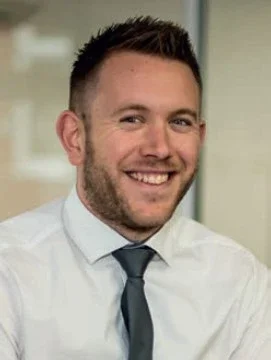
‘Since I was old enough to remember, I’ve had an interest in engineering, or at least the designing and building of things, perhaps before I knew what engineering was, certainly as an industry. My interest was piqued by stories my father used to tell; he was a mechanical engineer in the offshore industry until his retirement.
I was captivated by anything involving technology or science at school and it was no surprise to anyone when I decided to study Electronic and Electrical Engineering at Swansea University.
I graduated in 2004 with a BEng (Hons) and started my search for work broadly in the engineering industry. As it turns out, after initially taking employment elsewhere, I was destined to follow a similar path to three other family members at DLM. My sister, Carly, was the fourth family member to join the business; after retirees, the dynasty is continued today by ourselves.
I first stepped into the DLM building in Southampton in 1998 — six years before I would graduate. Approaching a time at school when you’re encouraged to make career choices, I decided to do work experience at the company, where there was already a family connection. From that moment on, never too long went by in between visits; I continued to work there part-time, during holidays from college and university. When I graduated, I worked for a contract electronics manufacturer as a sales engineer for five years.
Even then, this role meant I had visit DLM from time to time, to sell them products. On one of these visits, the previous owner expressed an interest in retirement and getting out of the business, at which point he asked me if I would be interested in buying him out and taking over. To cut a long story short, I wrote a business plan, borrowed money from the bank, and my father and I ended up buying the company from him. That was the start of my career in the lifting industry.
The lifting industry is one of the most important, yet underrated sectors there is. The trouble is, you only really hear people that work in the market say that — and even then many don’t say it loudly. That’s why it’s been great to see the momentum gained by GLAD over the last five years. Not only has it got people talking with pride about what they do, but that message is penetrating other sectors, and everyday life.
I think that’s why LEEA is somewhat bifocal in its #GLAD24 messaging. Stakeholders recognise that we need to push the best equipment, train our staff, and make sure inspection is given due priority, but we’ve also got to turn outwards to address people to whom lifting is only just on the edge of their consciousness, or not at all. It’s creating a snowball effect because the industry is raising its profile and presenting it as a shiny, interesting, gravity-defying thing to the outside world.
In its very nature, lifting is crucial to our everyday lives. We all got a sense of this when the pandemic heightened people’s awareness about logistics and the movement of food and household items. All those essential services were only possible due to lifting. Once someone has grasped this idea they can begin to see the role manual and material handling can play.
The next step is thinking about rigging gear, load monitoring, and safety devices. We haven’t opened the door to our industry so widely before. It was overdue.
Almost everything is lifted at some point and ensuring this is done safely, without causing injury, should always be at the forefront of everyone’s mind. If you think about where lifting is, it actually becomes a very short list of where it isn’t. As LEEA’s Think Lifting campaign championed, lifting touches every personal, professional, leisure, and wellbeing of our lives.
If you extend that to the opportunities lifting has given to myself and my family, it has seen us work on some amazing projects in every corner of the world. If you listen to a group of lifting and rigging professionals talk at a tradeshow or networking event, they’re often exchanging notes about the exciting projects they’ve worked on and the interesting places they’ve visited. Likely, they’ve also got a long list of upcoming assignments and travel booked for the next year. It’s challenging, fast-paced and exciting.
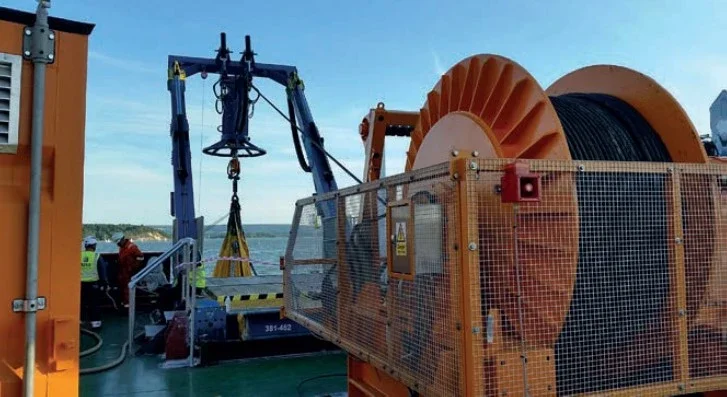
When I hear that young people want to work with computers and technology, not shackles and chains, I think of the challenge and opportunity presented to us by GLAD. Our industry is at the sharp end of the tech world too; we recently added Software as a Service to our load cells and monitoring equipment. We implement RFID technology and we plan to expand this further, with Running Line Monitors (RLMs) and saddleback monitors. My sister is passionate about sustainability and we have pioneered a series of measures to inspire the engineering sector to be greener and more sustainable. And although we are a small company, we have big plans backed by a passion to change the culture and behaviour of our organisation and lead by example. Lifting changes lives. Lifting saves lives. Lifting is life.’


